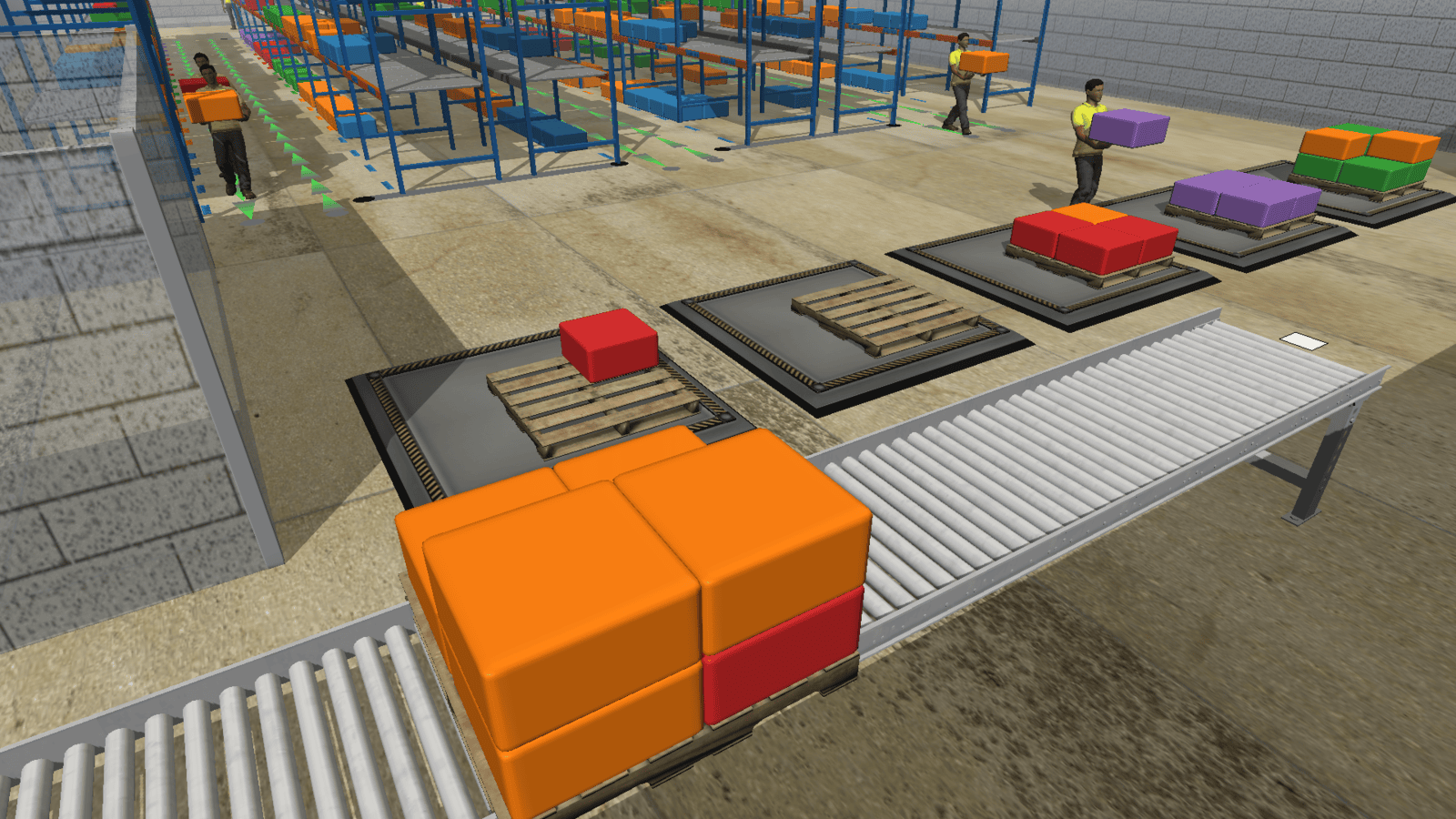
Simulation is a technological tool that allows the virtual and detailed recreation of a real system or process; its objective is to analyze how it behaves under different conditions. With the help of specialized software such as FlexSim, which is based on DES (Discrete Event Simulation), it facilitates the representation and optimization of processes in various industries such as manufacturing, logistics, healthcare, services, among others. Through this technology, organizations can experiment, evaluate, and visualize different scenarios before making decisions, all within a controlled environment that does not affect real operations. This helps detect, among other things, bottlenecks, improve workflows, and reduce operating costs, thus promoting continuous improvement in companies.
What is simulation used for?
Simulation is a fundamental tool for companies seeking to optimize their efficiency, reduce risks, and improve strategic decision-making. Its main applications include:
Process optimization: Allows analysis of workflows and elimination of inefficiencies to improve operational performance.
Scenario evaluation: Facilitates the testing of different design and operation strategies before implementation, ensuring the selection of the best alternative.
Risk analysis and decision-making: Identifies possible failures or disruptions in processes, allowing companies to anticipate and design contingency plans.
Staff training: Provides a safe and interactive environment to train teams in new technologies, processes, or procedures without affecting real operations.
Investment validation: Facilitates the evaluation of the financial and operational impact of new investments in infrastructure and/or technology, ensuring more informed decisions.
Benefits of simulation
| Benefit | Description |
|---|---|
| Cost reduction | Avoids unnecessary expenses by identifying possible problems before implementing changes in real operations. |
| Greater accuracy | Uses real data to generate accurate and reliable simulations, improving the quality of analysis. |
| Flexibility | Allows evaluation of different scenarios without interrupting production or services, facilitating adaptation to different conditions. |
| Improved decision-making | Provides quantifiable information that supports data-based business strategies, reducing uncertainty and optimizing results. |
Example of Application in Industry
Simulation has a significant impact in various sectors:
Manufacturing Industry: Optimizes production flow, reducing waiting times and optimizing assembly lines.
Logistics and Distribution: Facilitates the planning of storage, transportation, and product distribution, avoiding bottlenecks in logistics centers.
Healthcare: Helps evaluate resource allocation in hospitals, optimizing patient care and improving operational management.
Thanks to simulation, companies can analyze and compare different strategies before implementation, ensuring more efficient and profitable decisions.
Why work with us?
At Factible, we have a team of experts in process modeling and simulation, with extensive experience in sectors such as manufacturing and logistics. We use advanced tools such as FlexSim to develop customized models and solutions that allow companies to visualize, analyze, and improve their operational efficiency.

